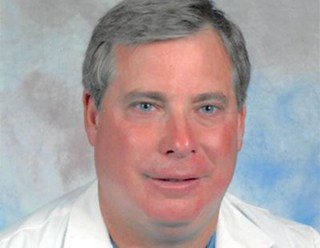


By Dr. John M. Livingston | Special Medical Policy Adviser
Words are important because they define our thoughts and actions. If we use words sloppily our thinking will be sloppy and our ability to define problems and design solutions to those problems will be affected.
To change the meaning of words or to blur their meaning, in order to form a premise in logic or create a moral argument, is even more dangerous.
A thinking person will require that words be used properly in establishing the premise of an argument and will recognize that when words are not used properly the premise is invalid.
This brings us to the nascent debate about government-run healthcare and its proponents’ usage of “natural rights.” A long history of political philosophy—from Plato and Aristotle through Aquinas and Locke, Burke, Rousseau and Jefferson—has defined natural rights very differently from how the term is casually tossed about by some who advocate a single-payer system as a solution to our healthcare problems.
Natural rights—life, liberty, the pursuit of property and happiness—do not demand of others an action necessary to sustain that right. Natural rights cannot place a positive obligation on one person to act on behalf of another. Rather, natural rights place a constraint, or a negative obligation, on one to recognize and respect the domain and sovereignty of others.
Legal rights, civil rights and human rights are not only secured by government but they demand an action by government for them to be sustained.
Many supporters of government-run, single-payer healthcare state that it is the obligation of government to provide resources to everyone. With such an assertion, said supporters, by definition, have created a legal and human right out of thin air, and prove the point that healthcare is not a natural right.
In an ideal world, the rights secured by government should not be in conflict with natural rights or natural law.
Rights should never be confused with the moral obligation that we have to help those in need.
Further, natural rights should not be confused with "a public good." Public goods by definition cannot be applied selectively, there must be jointness of consumption and investment and there must be a "neighborhood affect,” think roads and telephone lines.
Supporters of government-run single-payer systems confuse justice with charity. They do the same in the immigration argument when they confuse immigrant status with sanctuary refugee and asylum, and because of their misuse of words they create a system of compulsory charity, which is not charity and is an affront to the giver of charity's natural right not to be coerced.
Charity is not privilege or entitlement. Both privilege and entitlement require an intermediary. Many times the intermediary is government, benevolent or otherwise, which uses leverage to secure its promise.
The principles cited immediately above have been discussed for more than 4,000 years, from the Hebrew Torah to the writings of the Greek and Roman philosophers. Nowhere in these teachings is government described as the conduit for charity. My Catholic catechism tells me that charity is a covenant between the giver and receiver of charity, to which God is also a party. When government becomes involved in the process it is no longer a charitable act. In all the parables of the New Testament, Jesus called out the name of only one person, Lazarus. By naming Lazarus, Jesus made the transaction as personal as it could be. And, finally, let us remember Jesus's admonition, “Render therefore to Caesar the things that are Caesar’s; and to God, the things that are God’s."
That said, just because government programs exist to support those on the margins does not release us individually from our obligations to provide charity to those in need.
A common argument supporters of government-run healthcare make is that the healthcare marketplace needs to be replaced because it isn't working. We in the U.S. have not had an unfettered healthcare marketplace since 1975 when more than 50 percent of medical transactions were funded by the federal government. Today that number exceeds 65 percent.
We need to return to basic market principles in the healthcare sector precisely because we have proven that the system is far too complex for a command-and-control, single-payer system to handle. Even in those industrialized countries with oft-touted government-run healthcare systems there are thriving private insurance markets and independent providers—doctors and hospitals that are very much available to everyone. Without the private markets in those countries the government-run systems couldn't sustain themselves.

